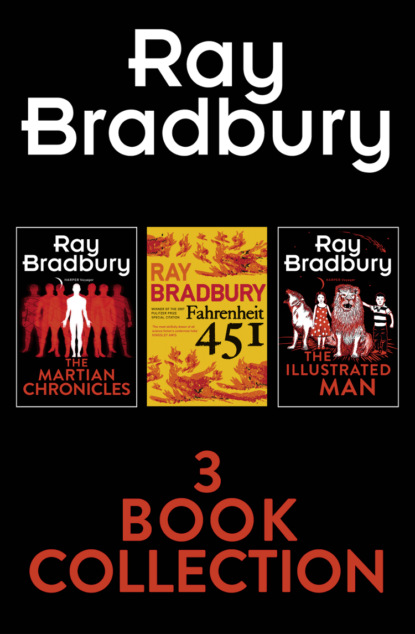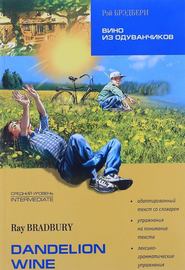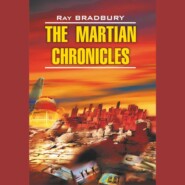По всем вопросам обращайтесь на: info@litportal.ru
(©) 2003-2024.
✖
Ray Bradbury 3-Book Collection: Fahrenheit 451, The Martian Chronicles, The Illustrated Man
Автор
Год написания книги
2019
Настройки чтения
Размер шрифта
Высота строк
Поля
Faber shook his hand. ‘I’ll tend to it. Good luck. If we’re both in good health, next week, the week after, get in touch. General Delivery, St Louis. I’m sorry there’s no way I can go with you this time, by ear-phone. That was good for both of us. But my equipment was limited. You see, I never thought I would use it. What a silly old man. No thought there. Stupid, stupid. So I haven’t another green bullet, the right kind, to put in your head. Go now!’
‘One last thing. Quick. A suitcase, get it, fill it with your dirtiest clothes, an old suit, the dirtier the better, a shirt, some old sneakers and socks …’
Faber was gone and back in a minute. They sealed the cardboard valise with clear tape. ‘To keep the ancient odour of Mr Faber in, of course,’ said Faber, sweating at the job.
Montag doused the exterior of the valise with whisky. ‘I don’t want that Hound picking up two odours at once. May I take this whisky? I’ll need it later. Christ I hope this works!’
They shook hands again and, going out of the door, they glanced at the TV. The Hound was on its way, followed by hovering helicopter cameras, silently, silently, sniffing the great night wind. It was running down the first alley.
‘Good-bye!’
And Montag was out the back door lightly, running with the half-empty valise. Behind him he heard the lawn-sprinkling system jump up, filling the dark air with rain that fell gently and then with a steady pour all about, washing on the sidewalks, and draining into the alley. He carried a few drops of this rain with him on his face. He thought he heard the old man call good-bye, but he wasn’t certain.
He ran very fast away from the house, down toward the river.
Montag ran.
He could feel the Hound, like autumn, come cold and dry and swift, like a wind that didn’t stir grass, that didn’t jar windows or disturb leaf-shadows on the white sidewalks as it passed. The Hound did not touch the world. It carried its silence with it, so you could feel the silence building up a pressure behind you all across town. Montag felt the pressure rising, and ran.
He stopped for breath, on his way to the river, to peer through dimly lit windows of wakened houses, and saw the silhouettes of people inside watching their parlour walls and there on the walls the Mechanical Hound, a breath of neon vapour, spidered along, here and gone, here and gone! Now at Elm Terrace, Lincoln, Oak, Park, and up the alley toward Faber’s house.
Go past, thought Montag, don’t stop, go on, don’t turn in!
On the parlour wall, Faber’s house, with its sprinkler system pulsing in the night air.
The Hound paused, quivering.
No! Montag held to the window sill. This way! Here!
The procaine needle flicked out and in, out and in. A single clear drop of the stuff of dreams fell from the needle as it vanished in the Hound’s muzzle.
Montag held his breath, like a doubled fist, in his chest.
The Mechanical Hound turned and plunged away from Faber’s house down the alley again.
Montag snapped his gaze to the sky. The helicopters were closer, a great blowing of insects to a single light source.
With an effort, Montag reminded himself again that this was no fictional episode to be watched on his run to the river; it was in actuality his own chess-game he was witnessing, move by move.
He shouted to give himself the necessary push away from this last house window, and the fascinating seance going on in there! Hell! and he was away and gone! The alley, a street, the alley, a street, and the smell of the river. Leg out, leg down, leg out and down. Twenty million Montags running, soon, if the cameras caught him. Twenty million Montags running, running like an ancient flickery Keystone Comedy, cops, robbers, chasers and the chased, hunters and hunted, he had seen it a thousand times. Behind him now twenty million silently baying Hounds ricocheted across parlours, three-cushion shooting from right wall to centre wall to left wall, gone, right wall, centre wall, left wall, gone!
Montag jammed his Seashell to his ear.
‘Police suggest entire population of the Elm Terrace area do as follows: Everyone in every house in every street open a front or rear door or look from the windows. The fugitive cannot escape if everyone in the next minute looks from his house. Ready!’
Of course! Why hadn’t they done it before! Why, in all the years, hadn’t this game been tried! Everyone up, everyone out! He couldn’t be missed! The only man running alone in the night city, the only man proving his legs!
‘At the count of ten now! One! Two!’
He felt the city rise.
‘Three!’
He felt the city turn to its thousands of doors.
Faster! Leg up, leg down!
‘Four!’
The people sleepwalking in their hallways.
‘Five!’
He felt their hands on the doorknobs!
The smell of the river was cool and like a solid rain. His throat was burnt rust and his eyes were wept dry with running. He yelled as if this yell would jet him on, fling him the last hundred yards.
‘Six, seven, eight!’
The doorknobs turned on five thousand doors.
‘Nine!’
He ran out away from the last row of houses, on a slope leading down to a solid moving blackness.
‘Ten!’
The doors opened.
He imagined thousands on thousands of faces peering into yards, into alleys, and into the sky, faces hid by curtains, pale, night-frightened faces, like grey animals peering from electric caves, faces with grey colourless eyes, grey tongues and grey thoughts looking out through the numb flesh of the face.
But he was at the river.
He touched it, just to be sure it was real. He waded in and stripped in darkness to the skin, splashed his body, arms, legs, and head with raw liquor; drank it and snuffed some up his nose. Then he dressed in Faber’s old clothes and shoes. He tossed his own clothing into the river and watched it swept away. Then, holding the suitcase, he walked out in the river until there was no bottom and he was swept away in the dark.
He was three hundred yards downstream when the Hound reached the river. Overhead the great racketing fans of the helicopters hovered. A storm of light fell upon the river and Montag dived under the great illumination as if the sun had broken the clouds. He felt the river pull him further on its way, into darkness. Then the lights switched back to the land, the helicopters swerved over the city again, as if they had picked up another trail. They were gone. The Hound was gone. Now there was only the cold river and Montag floating in a sudden peacefulness, away from the city and the lights and the chase, away from everything.
He felt as if he had left a stage behind and many actors. He felt as if he had left the great seance and all the murmuring ghosts. He was moving from an unreality that was frightening into a reality that was unreal because it was new.
The black land slid by and he was going into the country among the hills. For the first time in a dozen years the stars were coming out above him, in great processions of wheeling fire. He saw a great juggernaut of stars form in the sky and threaten to roll over and crush him.
He floated on his back when the valise filled and sank; the river was mild and leisurely, going away from the people who ate shadows for breakfast and steam for lunch and vapours for supper. The river was very real; it held him comfortably and gave him the time at last, the leisure, to consider this month, this year, and a lifetime of years. He listened to his heart slow. His thoughts stopped rushing with his blood.
He saw the moon low in the sky now. The moon there, and the light of the moon caused by what? By the sun, of course. And what lights the sun? Its own fire. And the sun goes on, day after day, burning and burning. The sun and time. The sun and time and burning. Burning. The river bobbled him along gently. Burning. The sun and every clock on the earth. It all came together and became a single thing in his mind. After a long time of floating on the land and a short time of floating in the river he knew why he must never burn again in his life.
The sun burned every day. It burned Time. The world rushed in a circle and turned on its axis and time was busy burning the years and the people anyway, without any help from him. So if he burnt things with the firemen, and the sun burnt Time, that meant that everything burned!
One of them had to stop burning. The sun wouldn’t, certainly. So it looked as if it had to be Montag and the people he had worked with until a few short hours ago. Somewhere the saving and the putting away had to begin again and someone had to do the saving and keeping, one way or another, in books, in records, in people’s heads, any way at all so long as it was safe, free from moths, silver-fish, rust and dry-rot, and men with matches. The world was full of burning of all types and sizes. Now the guild of the asbestos-weaver must open shop very soon.

















